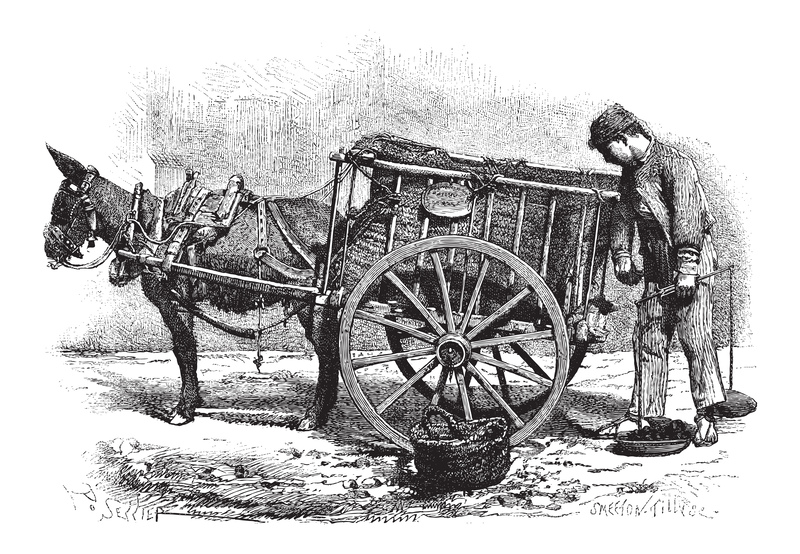What You Need to Know to Save on Bulky Waste Disposal
Every year, as households and businesses update furniture, remodel spaces, or clear out clutter, the challenge of bulky waste disposal arises. From unwanted sofas and mattresses to old appliances and office furniture, getting rid of large or awkward items can be both costly and complicated. However, with the right strategies and information, you can significantly reduce expenses and ensure that your bulky trash is managed sustainably.
Understanding Bulky Waste: What Is It?
Bulky waste refers to items that are too large or heavy to be disposed of via regular rubbish collections. Examples include:
- Furniture - sofas, beds, wardrobes, dining sets
- Appliances - refrigerators, washing machines, stoves
- Mattresses and box springs
- Carpets and large rugs
- Garden waste - tree branches, old lawn equipment
- Renovation debris - doors, sinks, countertops
Not only do these bulky items take up considerable space, but improper disposal can also result in hefty fines and harm to the environment. That's why it's critical to approach this responsibly and economically.

Why Is Bulky Waste Disposal So Expensive?
The high cost of discarding oversized waste comes from several factors:
- Special transportation and labor - Bulky junk requires more effort and larger vehicles.
- Landfill fees - Landfills often charge extra for large or non-standard items.
- Recycling and sorting - Additional processes may be necessary to recycle certain parts.
- Environmental regulations - Proper disposal of electrical goods or hazardous materials adds compliance costs.
Top Strategies to Save on Bulky Waste Disposal
1. Plan and Consolidate
One of the simplest ways to save on bulky rubbish collection is to plan ahead. Instead of disposing of items piecemeal:
- Schedule one large pickup rather than multiple smaller ones to benefit from bulk pricing.
- Coordinate with neighbors or friends for a group collection, sharing the costs.
2. Maximize Municipal Services
Most cities and towns offer residents special bulky item pickups (sometimes free or at reduced rates). Ensure you:
- Check local guidelines for permitted items, collection schedules, and reservation requirements.
- Utilize annual or seasonal free pickup days which many municipalities offer for large items.
- Register early, as slots can fill up quickly, especially during spring and autumn cleanout periods.
3. Explore Recycling and Donation Options
A huge percentage of bulky waste is still reusable or recyclable. Consider:
- Donating furniture or appliances that are still in working condition to charities, shelters, or thrift stores.
- Listing items online for free through platforms like Craigslist, Freecycle, Nextdoor, or Facebook Marketplace--someone may pick up your items for reuse.
- Taking items to recycling centers that accept things like mattresses, white goods, or scrap metal.
- Contacting appliance retailers when replacing goods--they often offer removal services at little or no extra cost.
Not only does donation and recycling reduce disposal fees, but it's an eco-friendly option.
4. Disassemble and Downsize
Where possible, break down large items:
- Disassemble beds, wardrobes, or tables into manageable parts, reducing their size and potentially lowering pick-up or drop-off costs.
- Remove non-recyclable parts before taking items to a recycling center, as fees are often based on non-recyclable materials.
5. Avoid Illegal Dumping: It's Costlier Than You Think
Some people try to save money by leaving furniture or appliances on curbsides or in unauthorized areas. Illegal dumping can result in harsh fines, community cleanup costs, and environmental harm. Always use proper disposal routes!
How to Compare Bulky Waste Collection Services
With numerous options available, choosing the right bulky waste disposal service can save you both money and headaches. Consider:
- Price transparency - Are costs per item or per load? Are there hidden fees for handling, transportation, or recycling?
- Accepted items - Does the company take your specific waste, such as mattresses, electronics, or garden debris?
- Licensing and insurance - Ensure providers are certified, protecting you from liability or improper disposal fines.
- Reviews and reputation - Research customer feedback online to gauge reliability and service quality.
Request multiple quotes and clarify any details before booking. Some services offer price matching for larger loads.
DIY Bulky Waste Disposal: Is It Worth It?
If you own a suitable vehicle or trailer, you may consider handling the removal of bulky trash yourself. Here are essential tips:
- Check local drop-off site rules - Some accept bulky items for free; others require appointments and fees.
- Properly secure your load - Failing to do so is not only unsafe but also illegal in many areas.
- Sort items for recycling - Separate metals, electronics, and hazardous materials to ensure proper processing and potential fee reduction.
- Respect opening hours and restrictions - Avoid unnecessary trips or waiting times.
*DIY disposal can significantly reduce costs, especially for those living near transfer stations or municipal recycling centers.*
Bulky Waste and Environmental Responsibility
A key aspect of saving on bulky waste disposal is considering the environmental impact:
- Avoid landfill overflow - Where possible, choose options that divert materials from landfill, such as reuse, recycling, or upcycling.
- Beware of hazardous materials - Items like refrigerators (which contain refrigerants), old TVs, and electronics require special handling.
- Support circular economy practices - By donating or selling items, you extend their life cycle and conserve valuable resources.
Responsible disposal helps protect local ecosystems and community wellbeing.
Common Mistakes to Avoid When Disposing of Bulky Items
- Not checking for free disposal options - Many miss out on council-sponsored pickups or recycling programs.
- Ignoring hazardous content - Disposing of fridges, televisions, or chemicals improperly can lead to fines and contamination.
- Wrong time or place - Placing items on the curb at unauthorized times may result in penalties or return.
- Incomplete research - Paying more for professional hauling when alternatives exist.
Frequently Asked Questions About Bulky Waste Disposal
Q: How can I find out when my local council offers free bulky item collection?
A: Visit your local municipality's website or contact their waste management department. Sign up for email or app notifications to stay updated.
Q: Can I leave large waste items on the curb?
A: Only on designated collection days and with pre-approval (if required). Unauthorized curbside dumping is illegal in most areas.
Q: Are there charities that pick up bulky furniture for free?
A: Many local and national organizations, including Goodwill, Salvation Army, and Habitat for Humanity, may offer pickup for donatable items in good condition.
Q: Do rental properties or landlords cover disposal costs?
A: It depends on your lease agreement. Landlords may assist, but most often, outgoing tenants bear the responsibility for removal of personal bulky items.

Key Takeaways for Saving on Bulky Waste Disposal
- Plan ahead to schedule group or municipal pickups.
- Check every option for donating or recycling before disposing.
- Compare companies and demand transparent pricing.
- Never resort to illegal dumping - it backfires financially and environmentally.
- Disassemble items when possible to reduce costs and maximize recycling opportunities.
If you follow these strategies, you'll not only save money but also contribute to a cleaner, greener community. Smart solutions for bulky waste removal are available for everyone--whether through donation, recycling, or making the most of local services.
Conclusion: Make the Most of Your Bulky Waste Disposal
Properly managing bulky waste disposal does not mean breaking the bank or the environment. With a combination of thoughtful planning, awareness of local resources, and eco-friendly habits, you'll find that dealing with large or unwieldy items can be stress-free and affordable.
*Assess your options, act responsibly, and help promote a sustainable approach to large waste removal!*